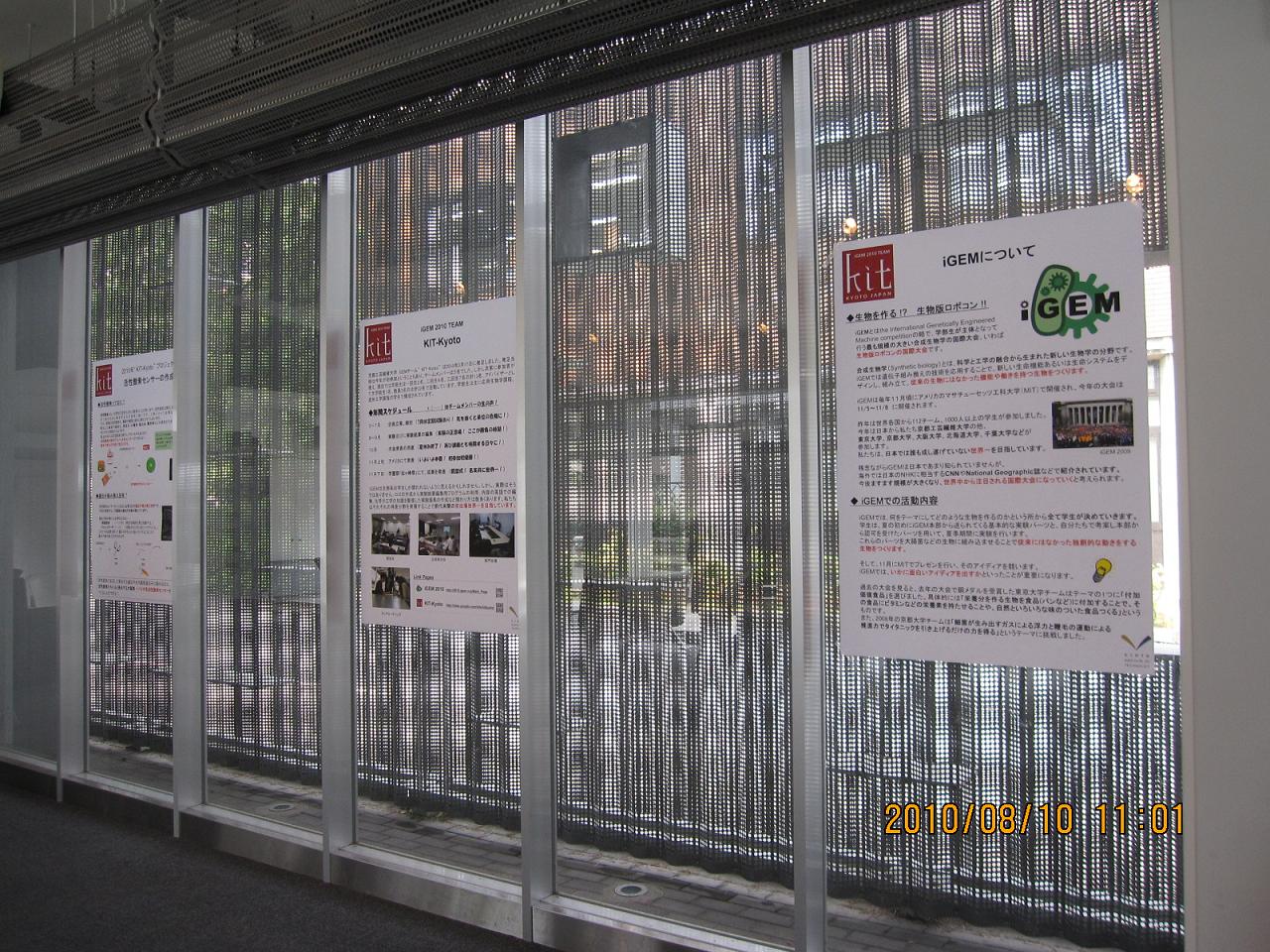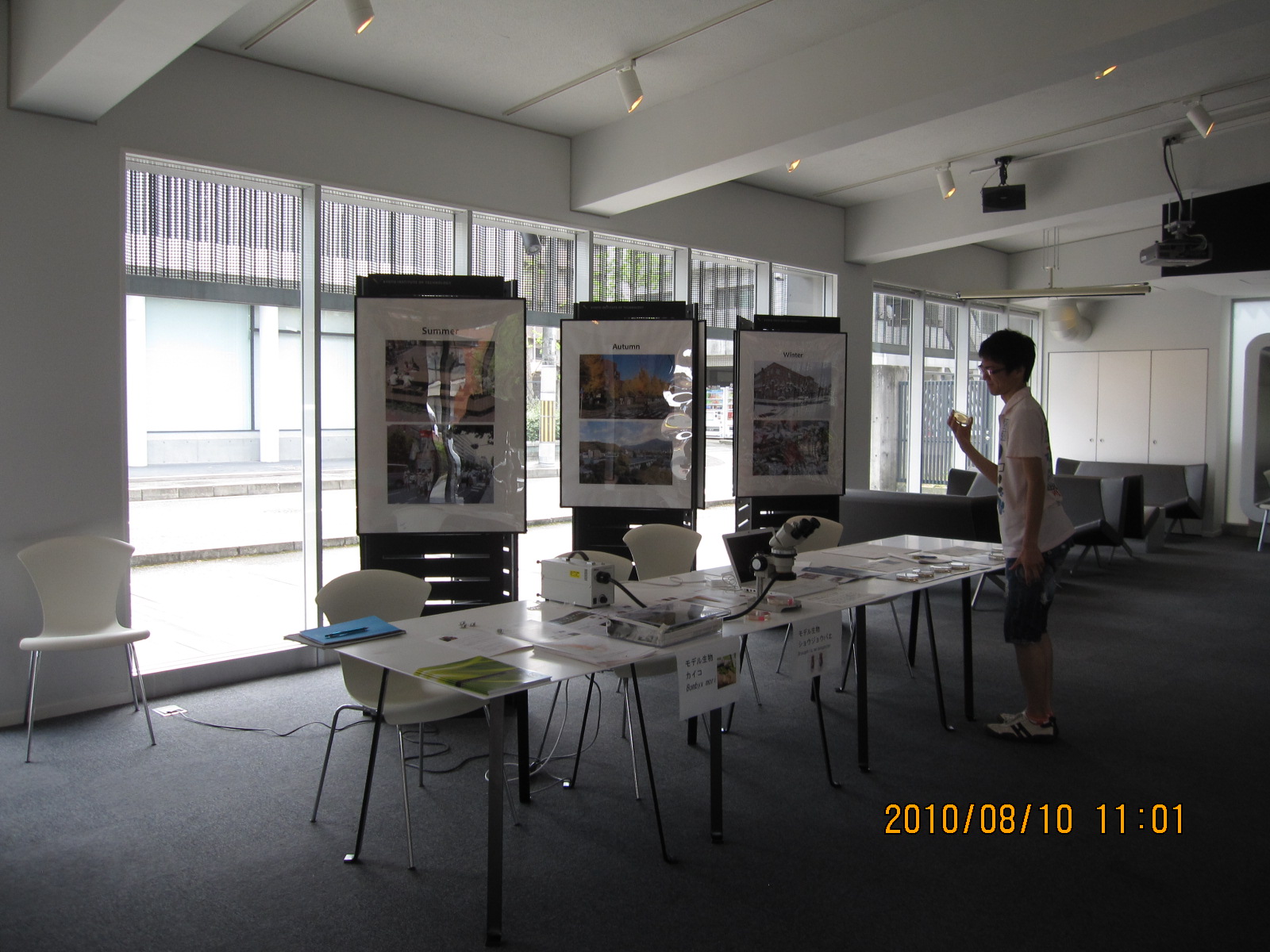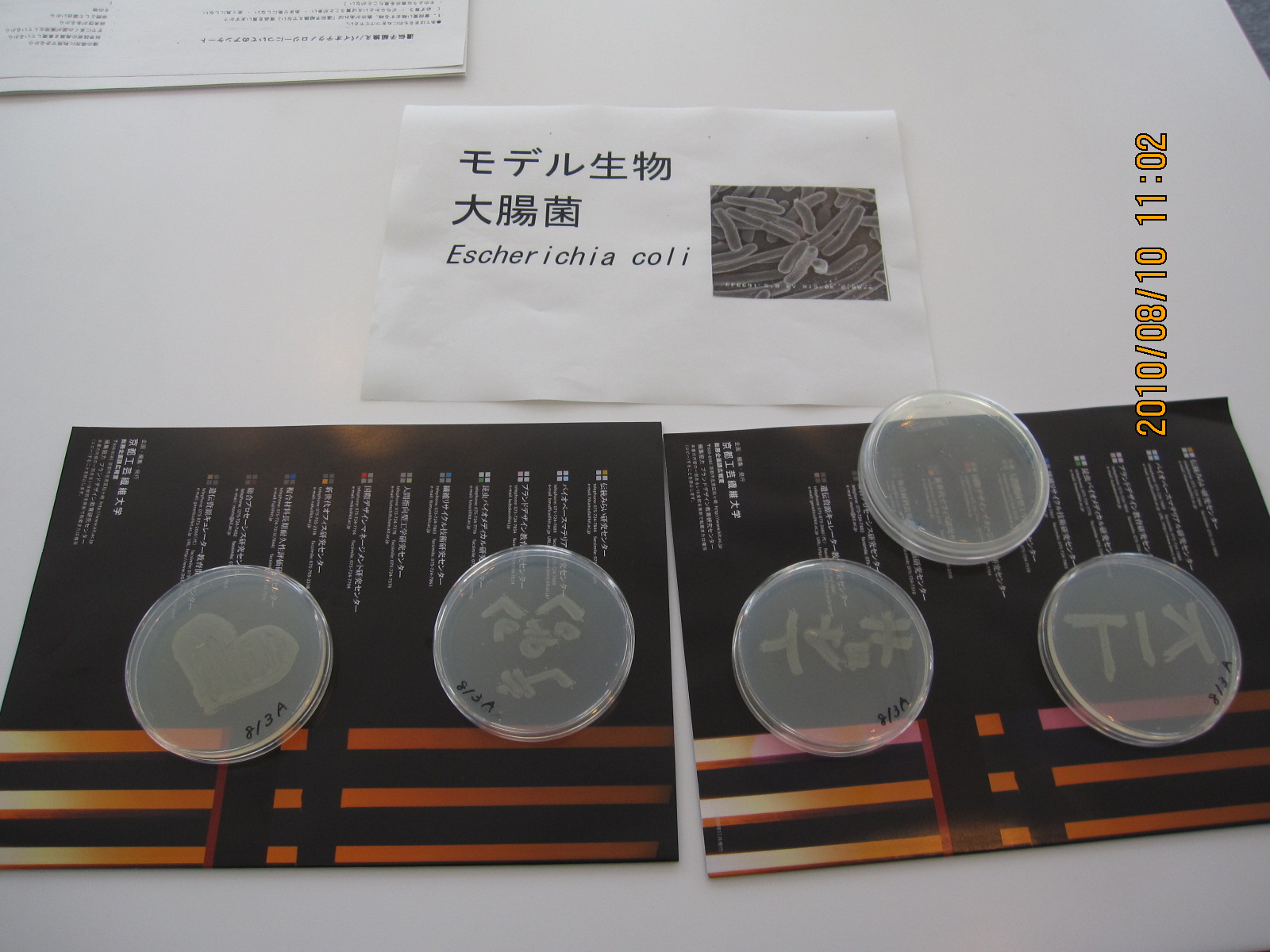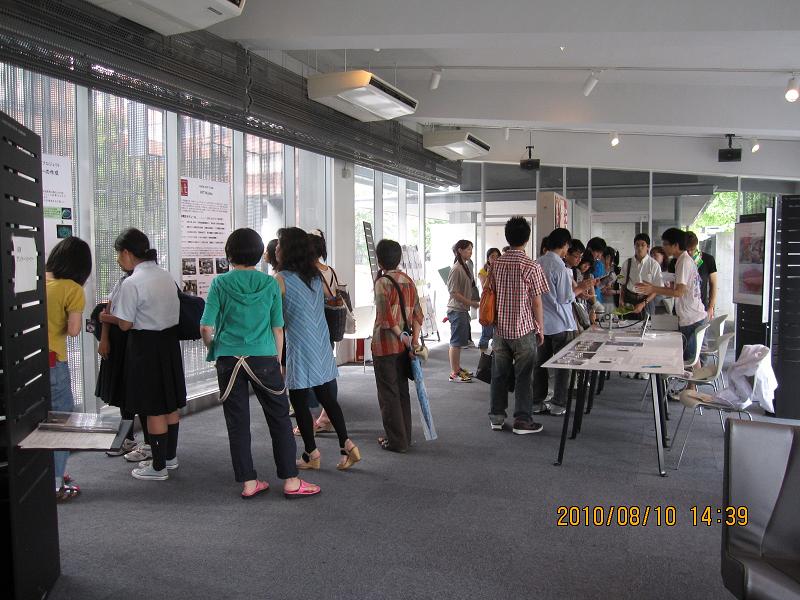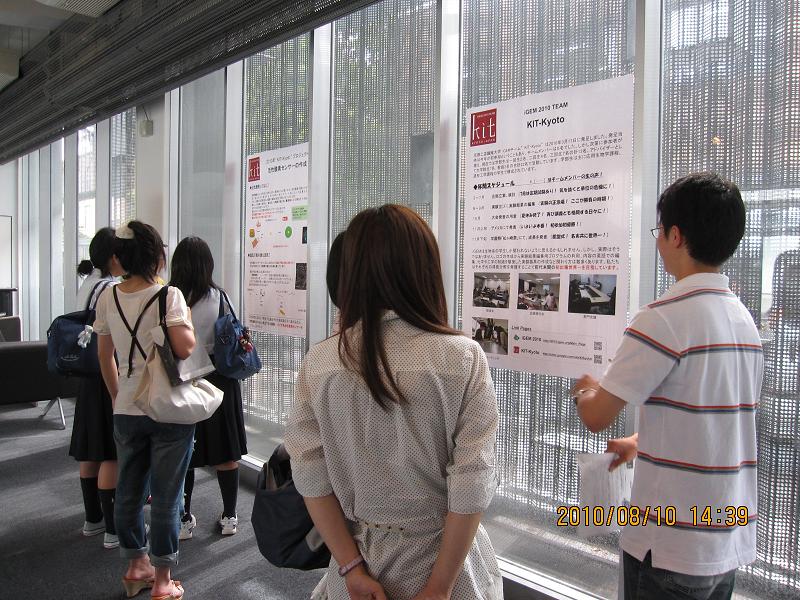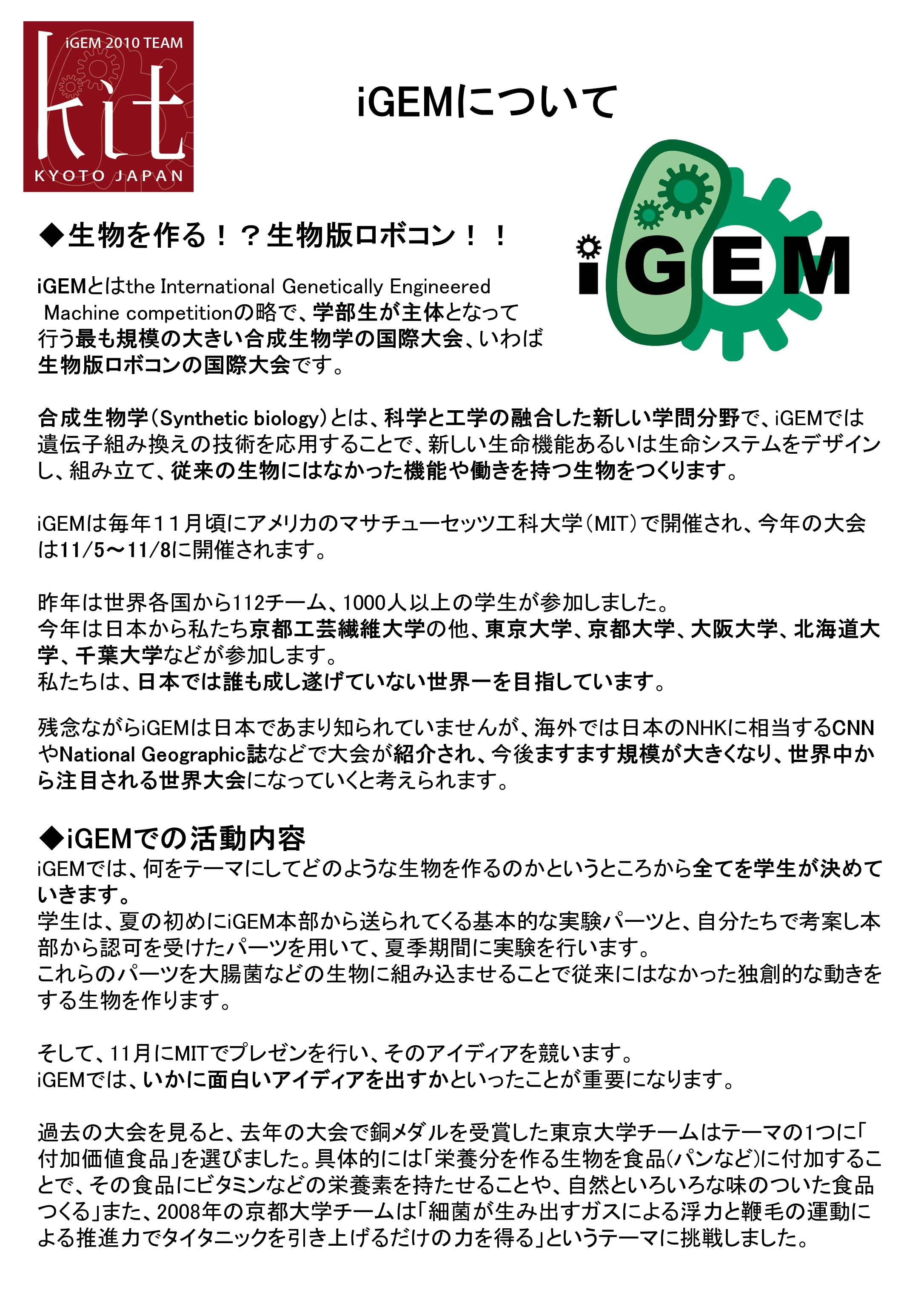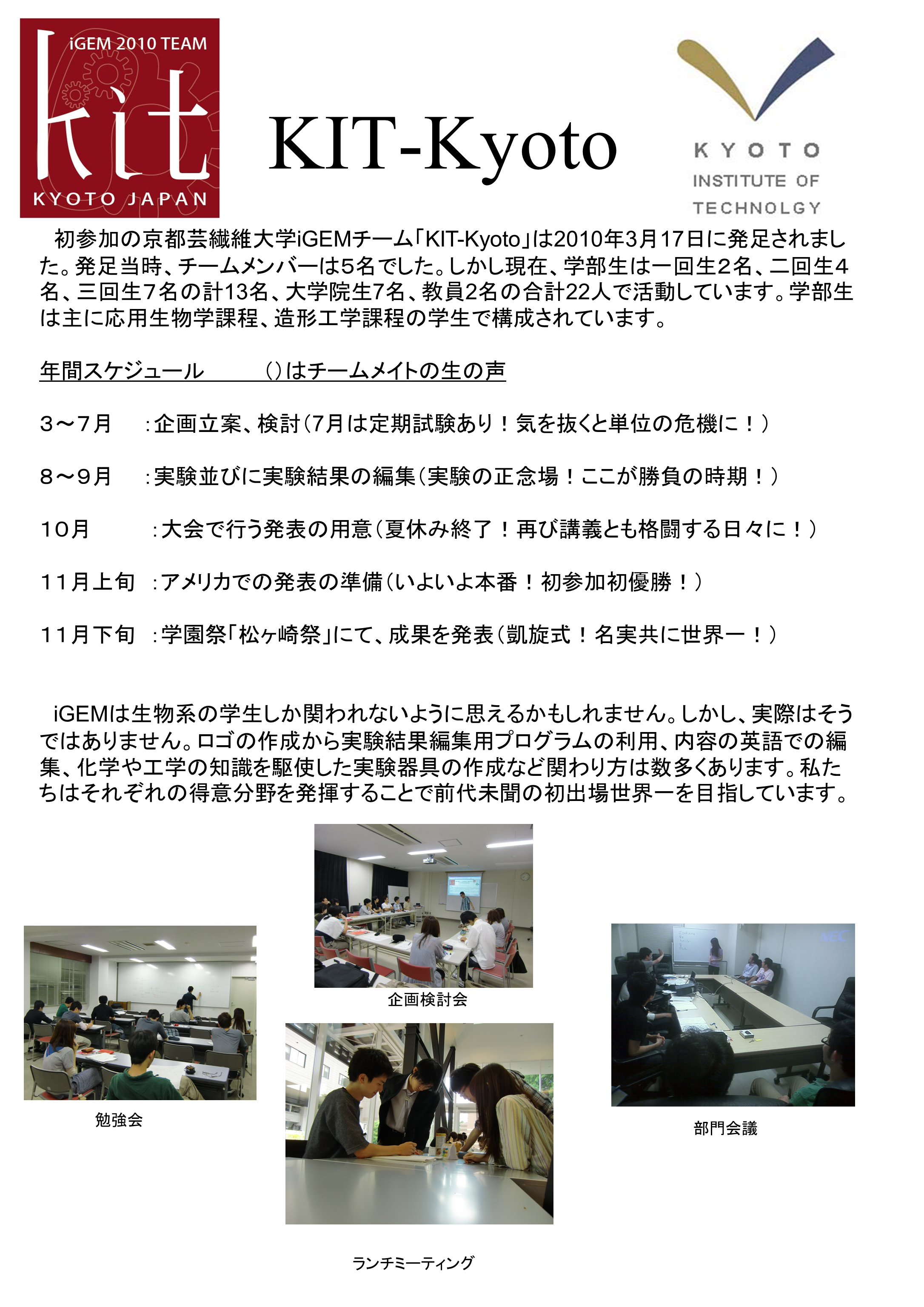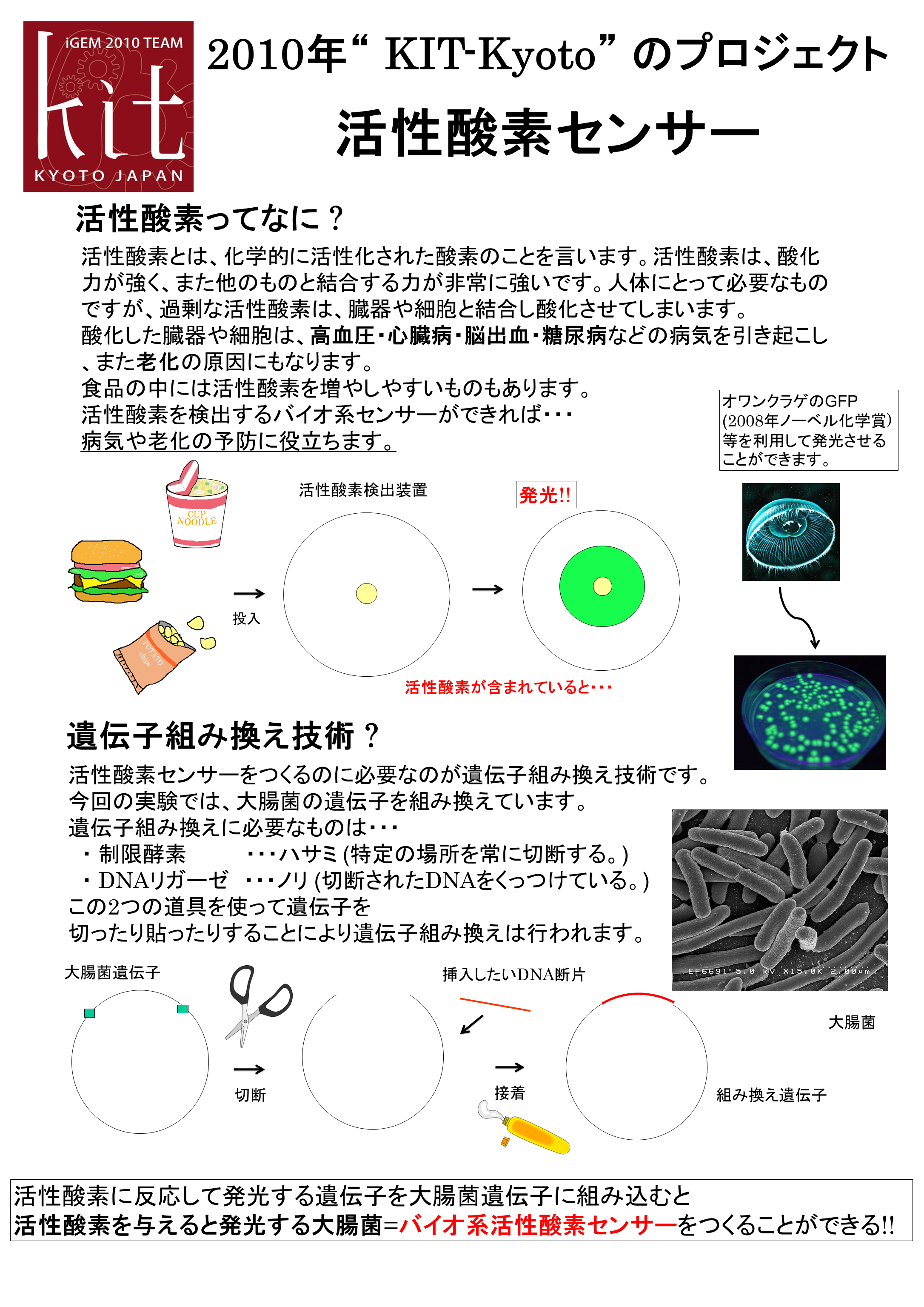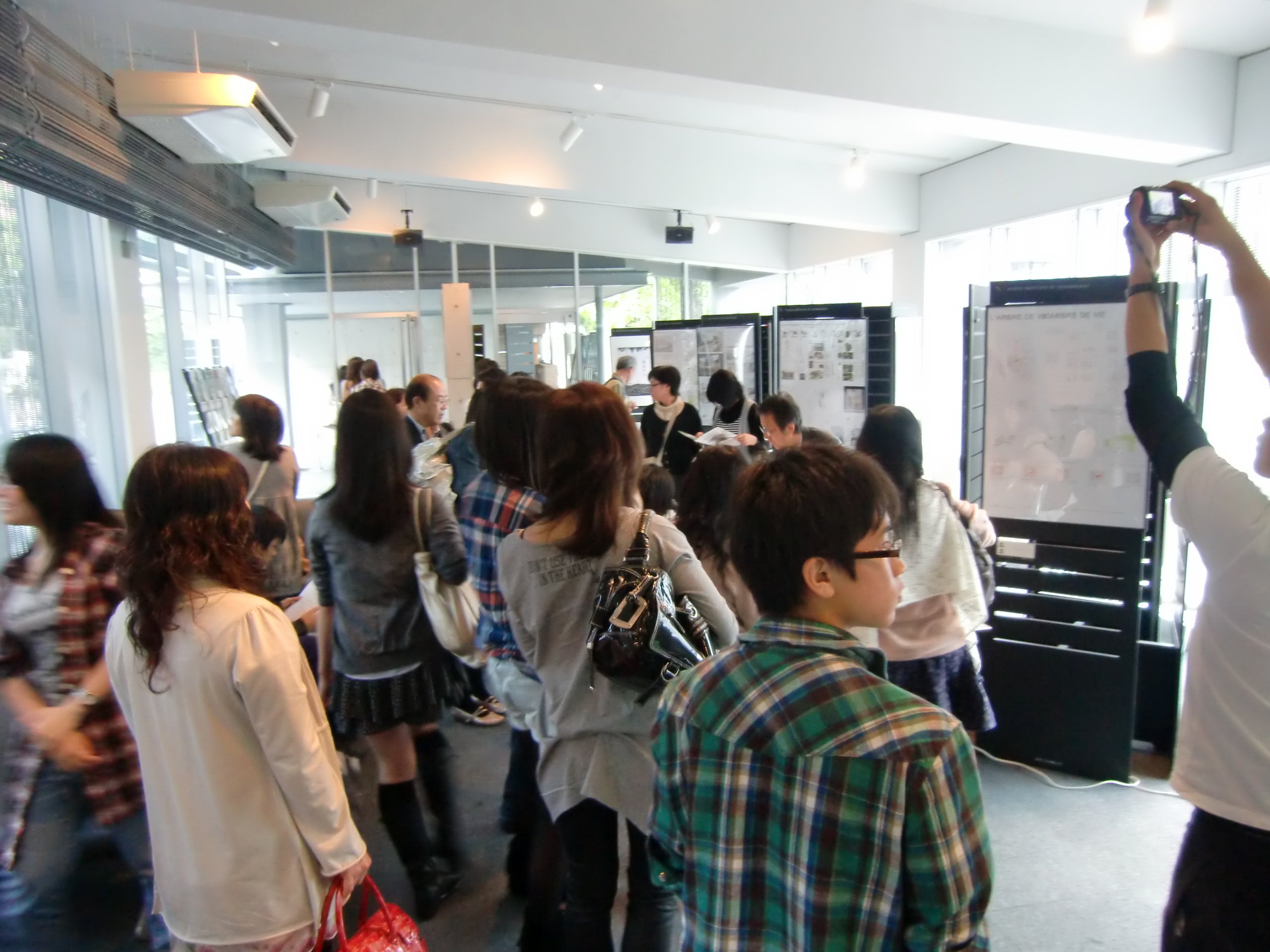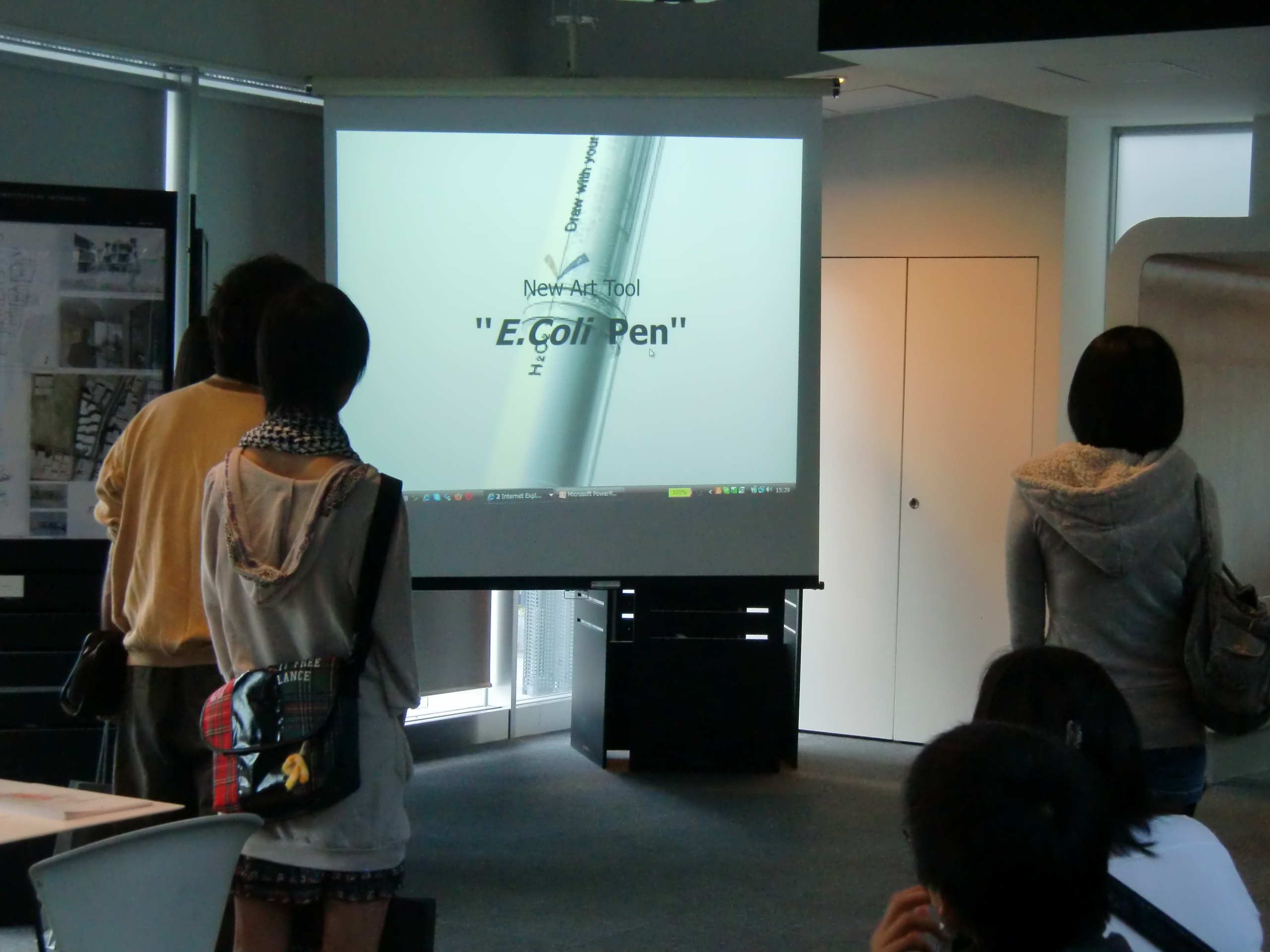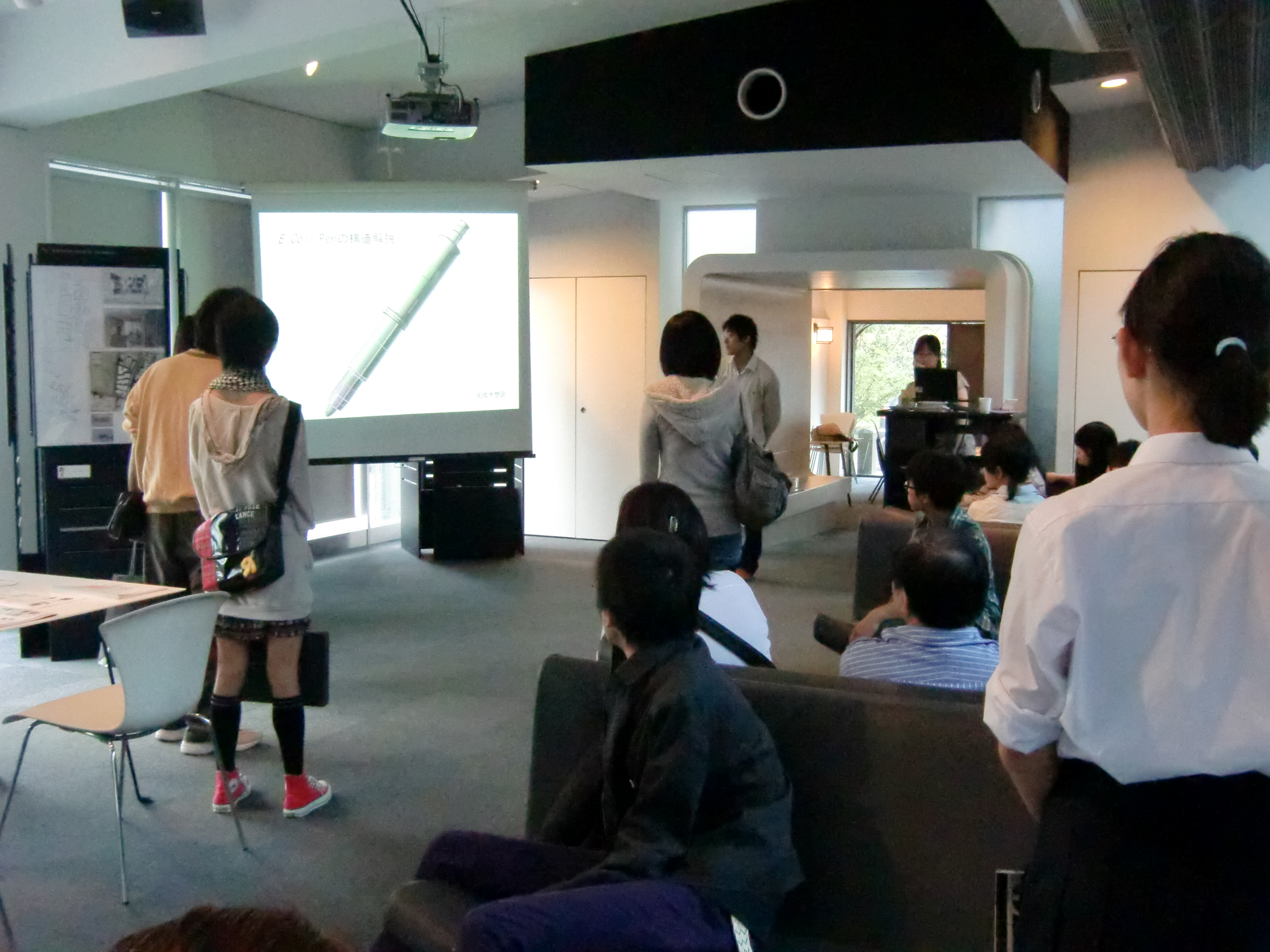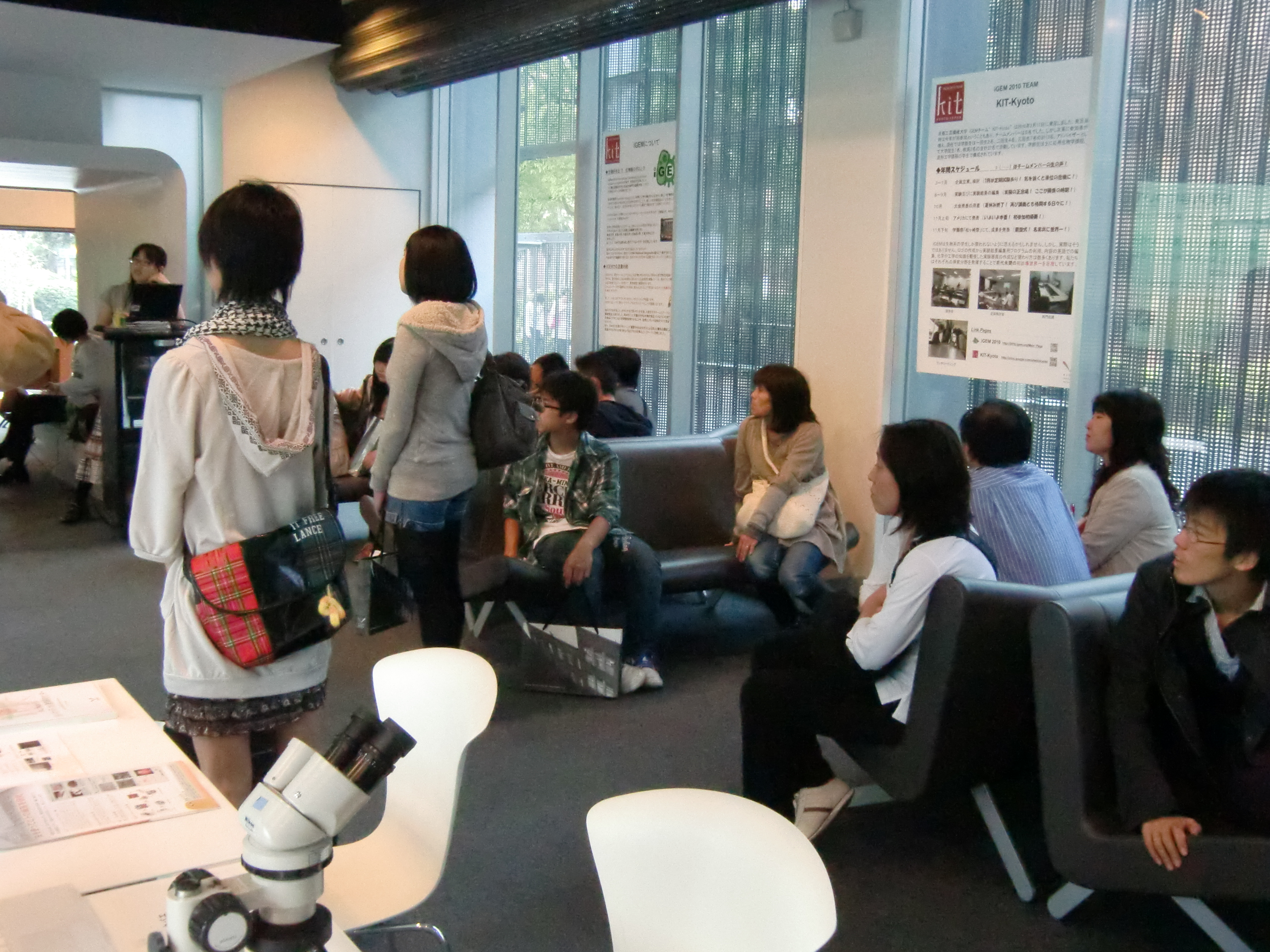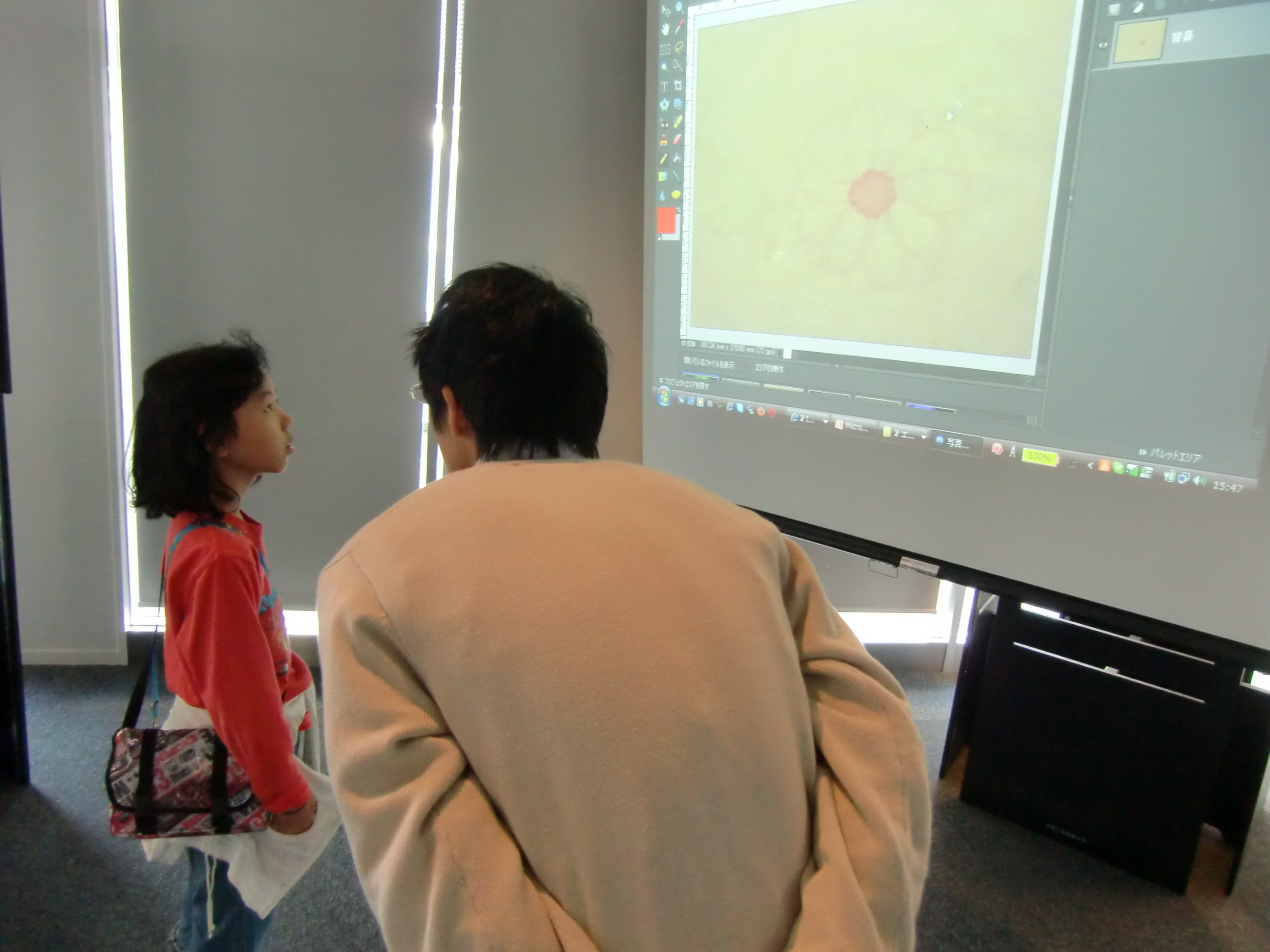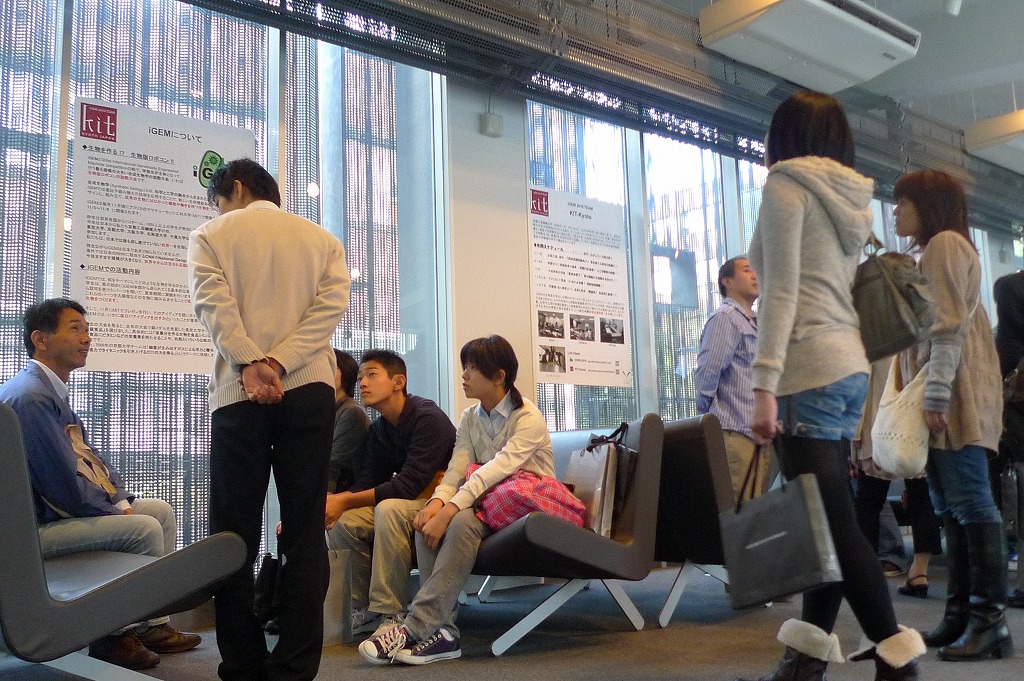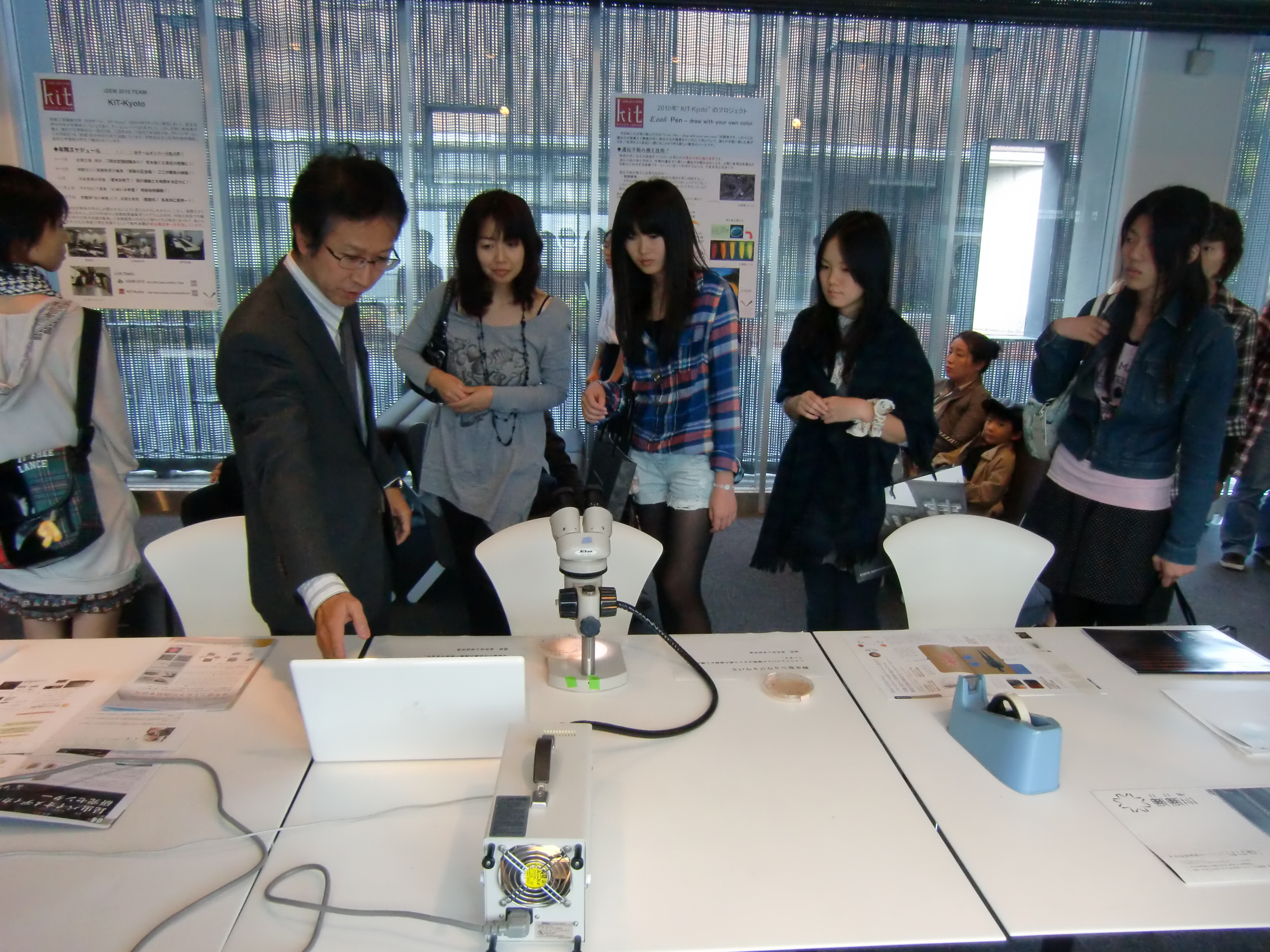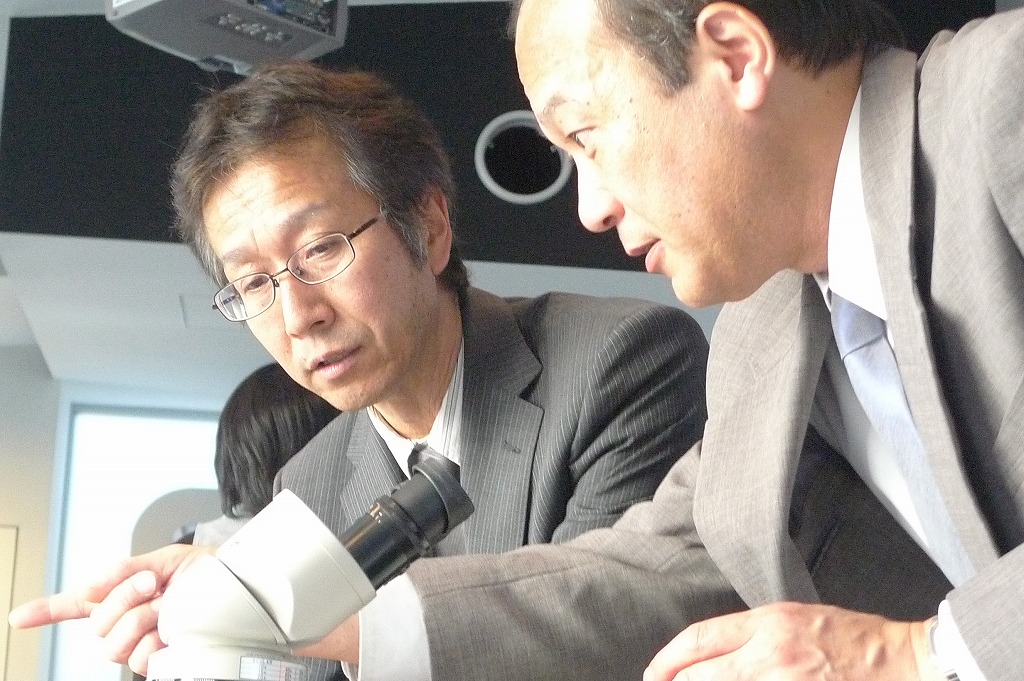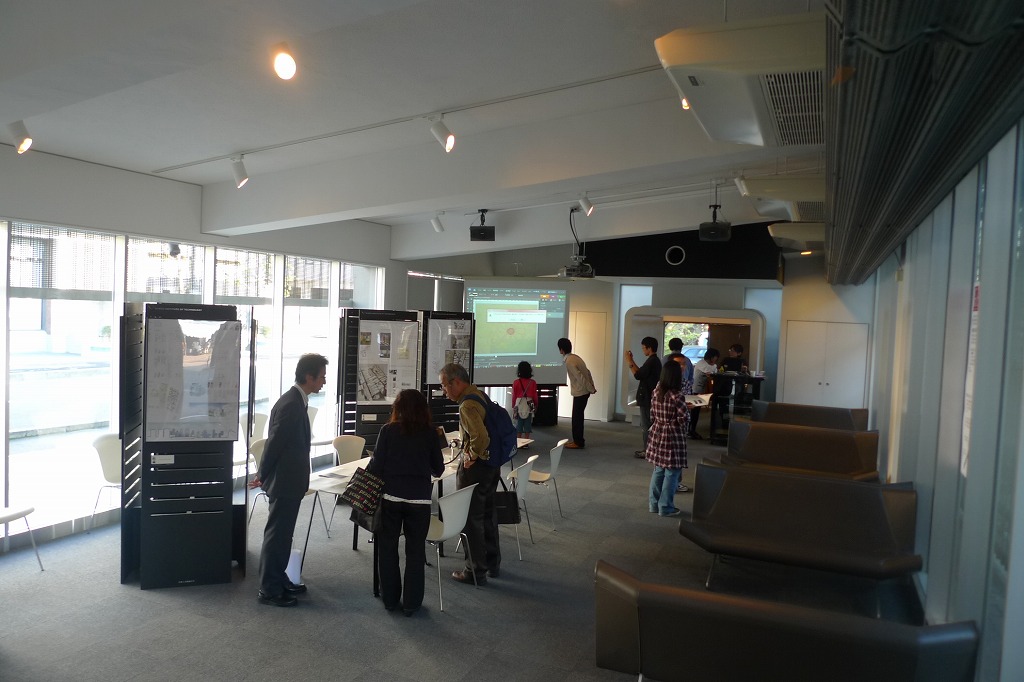Team:KIT-Kyoto/Project/HumanPractice
From 2010.igem.org
(→A briefing for high school students) |
|||
| Line 24: | Line 24: | ||
We held a booth for high school students and their parents. In addition to the August one, we displayed a specimen of our so called “E.Coli Pen”. Students could draw with this pen, and have a close contact with synthetic biology. Having them appreciate the subtle connection between art and science has been an enlightening feed-back for our group, since we have been able to observe and judge the aspects of human reaction towards the new and the unknown, when information is fully supplied about the particular phenomenon or technology. They have learned and enjoyed the harmony that can exist between Science and Art. | We held a booth for high school students and their parents. In addition to the August one, we displayed a specimen of our so called “E.Coli Pen”. Students could draw with this pen, and have a close contact with synthetic biology. Having them appreciate the subtle connection between art and science has been an enlightening feed-back for our group, since we have been able to observe and judge the aspects of human reaction towards the new and the unknown, when information is fully supplied about the particular phenomenon or technology. They have learned and enjoyed the harmony that can exist between Science and Art. | ||
| + | |||
| + | :[[Image:KITOC2-0.jpg|150px]] [[Image:KITOC2-3.jpg|150px]] [[Image:KITOC2-2.jpg|150px]] [[Image:KITOC2-1.jpg|150px]] [[Image:KITOC2-5.jpg|150px]] | ||
| + | :[[Image:KITOC2-6.jpg|150px]] [[Image:KITOC2-4.jpg|150px]] [[Image:KITOC2-7.jpg|150px]] [[Image:KITOC2-8.jpg|150px]] | ||
== A proposition for businessperson == | == A proposition for businessperson == | ||
Revision as of 03:05, 23 October 2010
 
|
|
Home > Human Practice | Language : English / Japanese |
First
In our days, science alienation is still a big problem that transcends borders. Japan suffers of a similar alienation that poses a barrier towards further advancement of science and technology. In biology, genetic modification epitomizes the magnitude of this problem among people who regard synthetic technologies and sciences as “something strange”, or “something dangerous” in general.Whereas genetically modified foods are sold on the counter, consumers don&'t pick or choose food with labels. This results from the scarcity or lack of information on genetic modification on the part of the general public. Since a more rapid advancement of the field of life sciences is expected in the near future leading to more complicated technologies, information and communication will also become critical. Moreover, while we benefit from technology, his is increasingly becoming “a black box”. Unknown technology is not familiar any longer. Accordingly, to let people in Japan and in the world know about more information of genetic modification, we tried activities below.
A briefing for high school students
1.At the open campus in August (2010/08/10)
For high school students and their parents, we held a booth at KIT-Kyoto. In this booth, we introduced iGEM and our activities. To make the lecture simple, we tried to avoid using technical terms. Besides, we displayed model organisms genetically modified, for example, Yeast, Silkworm, Drosophila and E.Coli. Students could touch the silkworms and see Drosophila mutants, both organisms were genetically modified. We aimed to make their understanding clear, and make them have a feeling of familiarity for genetic modification. There were about 200 students who came to our booth. They told us that their ideas and conceptions about biology were broadened by looking closely at the model organisms.
2.At the open campus in October(2010/10/17)
We held a booth for high school students and their parents. In addition to the August one, we displayed a specimen of our so called “E.Coli Pen”. Students could draw with this pen, and have a close contact with synthetic biology. Having them appreciate the subtle connection between art and science has been an enlightening feed-back for our group, since we have been able to observe and judge the aspects of human reaction towards the new and the unknown, when information is fully supplied about the particular phenomenon or technology. They have learned and enjoyed the harmony that can exist between Science and Art.
A proposition for businessperson
We have exposed our activities and achievements of our project to the University Venture Business desk at KIT. The “E.Coli Pen” blueprint and the living-pen drawing project was awarded some new funds for further investigation and prosecution. The referees have shown a favorable opinion of our plans.
[http://www.vl.kit.jp/ja/project/2010.html >>the University Venture Business desk at KIT]
Participation to iGEM Japan and its survey
Our team is participating as one group of [http://igemjapan.net/ iGEM-Japan] to improve the image and perception of iGEM in Japan. iGEM-Japan is organization constituted by Japanese iGEM teams. The purpose of this organization is to make of iGEM a more active enterprise fueled by inter-group cooperation. The main member teams constituting iGEM are Osaka , Kyoto, Tokyo Metropolitan , UT-Tokyo, Tokyo Tech, Sapporo and our KIT-Kyoto. So far, the organization has performed various activities, for example, contributing an article to a magazine, holding pre competition conferences and meetings in Japan, and others. As a part of our activities, we conducted a survey widely targeted to public ranging from high school students to citizens in general. The objective of the survey was to find how Japanese people feel or think about synthetic biology and its problems like bioethics or safety. We asked people who came not only from biology departments but also from various fields of study. We also asked visitors at the open campus mentioned above. Furthermore, we made it able to answer from iGEM Japan’s website so that we could collect the answer from various classes. We are summarizing the result now.
The Questionnaire
| 0. Attitude survey of |
|---|
|
| 1. When shopping, do you buy "not genetically modified food”? |
|
| 2. What do you associate with [ genetic engineering and biotechnology ]? (※Please circle all that apply) |
|
| 3. If there is no difference in effect, what do you think about using the drugs manufactured by [ genetic engineering / biotechnology ]? |
|
| 4. What do you think of the artificial genetic mutation? |
|
| 5. Which trend of information about [ genetic engineering / biotechnology ] is major, negative or positive? |
|
| 6. Do you think Japan actively tackles [ genetic engineering / biotechnology ]? |
|
| 7. Do you think the research on [ genetic engineering / biotechnology ] should continue? |
|
|
|
|
|
| 8. Have you ever heard the word, "Synthetic biology"? |
|
Collaborating with other iGEM teams
We actively participated to survey by other iGEM team. The survey we joined is below.
- Team:Warsaw: survey about iGEM and synthetic biology
- Team:Freiburg_Bioware: lab photo competition
- Team:METU_Turkey_Software: survey about iGEM and synthetic biology
- Team:Mexico-UNAM-CINVESTAV: survey about iGEM and synthetic biology
 "
"









